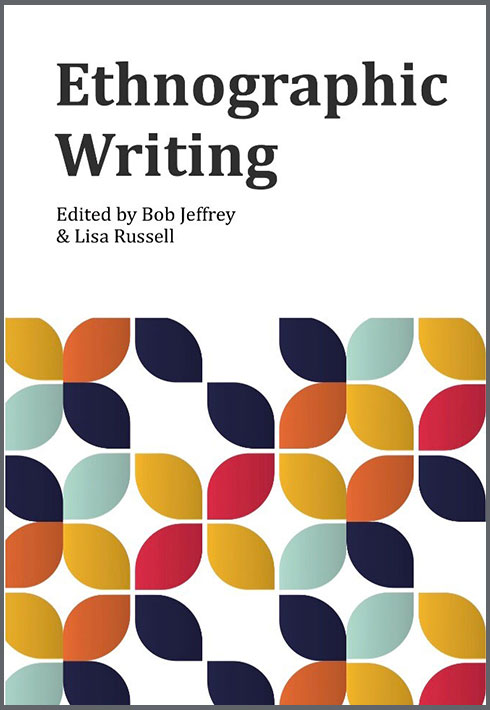
Dr Lisa Russell
HudCRES
Writing Ethnography is complex, time consuming and hard work. It is also fundamental to the ethnographer.
Writing matters to ethnographers
We write, re-write and re-write again and again from the moment we enter the field to the end point of dissemination – something Coles and Thomson (2016) have coined ‘in-between writing’. We write during the collection and development of fieldnotes; compose reflective and reflexive memos and diaries; surmise previous writings and readings; make sense of our data by writing during data analysis and re-present the context and culture of others via our long-term engagement with the field and its participants. Writing also constitutes the main forum for dissemination during conference proceedings, writing books, chapters, journal articles and the like.
What counts as ‘ethnographic writing’ is contested and different ethnographers adopt different means throughout the writing process. What we write, why we write and how we write differs, with some ethnographers including drawings, pictures and multi-modes of representations as inclusive of their writing practices. Furthermore, modes of interpretation, representation of the ethnographer as the main research instrument and of the participants themselves are complicated and have long been problematised by ethnographers. During the 1990’s sociologists began to reflexively examine their writings and critically analysed how their writings shaped how certain cultures were being represented. The link between ‘experience’ and ‘text’ was interrogated (Alder and Alder, 2008); authority and authenticity were challenged whereby a ‘crisis of representation’ arose (Clifford and Marcus, 1986; Geertz, 1988; Van Maanen, 1995).
Through writing the ethnographer constructs meaning and develops knowledge, thus what we write matters.
Introducing the book
Bob Jeffrey and I have edited a book on ‘Ethnographic Writing’, published in September 2018 by E&E Publishing and launched at this year’s Oxford Ethnography and Education Conference.
The series collates eleven articles gathered from across the Ethnography and Education global network bringing together ethnographers’ experiences and reflective practices regarding the nature of ethnographic writing.
The book is relevant to anyone engaged in Ethnography because the articles all deal with common issues and writing practices experienced with members of the research site, ethical issues regarding writing; ethnographer self-awareness; performative writing; new materialist approaches and the role of ethnographic writing.
The articles are divided into three sections
- Writing and fieldnotes
- Fieldwork writing practices
- Researcher relationships with responders and researcher colleagues

The first section Writing and Fieldnotes includes Hammersley’s review of literature focused on ethnographic writing. Delamont then takes this section further by comparing the nature of fieldnotes for anthropologists to later social science ethnographers. Borgnakke concludes this section by explicating the challenge for the ethnographer to recognise the differences between the ‘fieldworker’; ‘analysist’ and ‘writer’.
The second section describes Fieldwork Writing Practices. Thomson starts by troubling the issue of ‘representation’. Jeffrey explores five types of writing and Wieland challenges social science ethnographic practices by suggesting more attention is needed to acknowledge a range of date collection modes.
Section three, Researcher-Member Relationships and Writing starts with Milstein, Clemente and Guerrero, they argue that ethnographers can gain greater insights into ‘what’s going on here?’ if a more collaborative approach between the researched and the researcher ensues. Next is my chapter whereby I argue that writing is a political act that should recognise power differentials throughout the writing process. Parker-Webster and Raggl then bring us back to the issues concerning the anthropological interest in reflecting on fieldnotes continually.
The book is available from the Ethnography and Education (price £13 plus postage and packaging), from Amazon, and all good book shops.
Next year the Oxford Ethnography and Education Conference will again be hosted at New College, Oxford, from the 9th-11th September 2019.
Email Lisa for further information.

